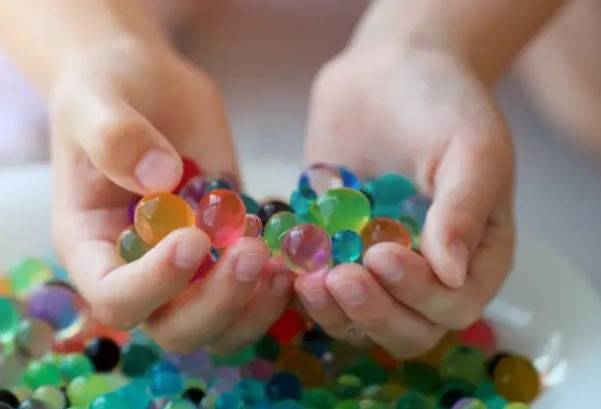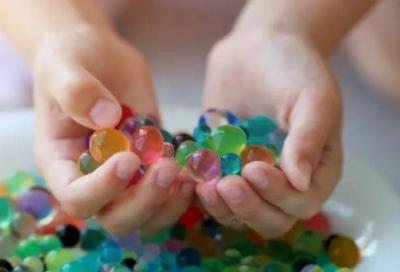After years of injury reports and safety guidelines, water beads continue to pose a serious and growing health risk to young children, according to a report by NBC News, citing the U.S. Consumer Product Safety Commission. Usually marketed as colorful, sticky, and sensory items for children to play with, these polymer beads can be as small as an earring, making them small enough to swallow but capable of expanding to the size of a golf ball when soaked in water. Once ingested, they can cause gastrointestinal blockages.
The Consumer Product Safety Commission (CPSC) recorded nearly 7,000 injuries related to polymer bead ingestion in emergency rooms between 2018 and 2022. The commission recently issued warnings about two products that pose toxicity risks and urged consumers to dispose of water beads from specific Chinese brands, Jangostor and Tuladuo, which were sold on Amazon in November 2023. According to the CPSC, these products contain unsafe levels of acrylamide, a chemical compound considered a potential carcinogen.
High levels of exposure can also have adverse effects on the nervous and reproductive systems. A statement from the U.S. Consumer Product Safety Commission emphasized, "Product warnings highlight that the risks of water beads can extend beyond swallowing, expansion, and gastrointestinal blockage in children, as acrylamide is a known carcinogen. The large water beads mentioned in the warnings contain acrylamide levels in violation of federal hazardous substances laws."
Dr. Elizabeth Murray, a pediatric emergency medicine physician at the University of Rochester and spokesperson for the American Academy of Pediatrics, explained that water beads "are easy to swallow, but if they continue to expand while in a child’s gastrointestinal tract, they can cause some blockage." Dr. Murray noted that she frequently sees children visiting the emergency room with water beads lodged in their noses or ears, causing pain or blockage or infection.
For parents wondering how to keep their children safe, Healthychildren.org, supported by the American Academy of Pediatrics, recommends that parents wait until all children in the household are at least 3 years old before purchasing water beads and supervise them while playing with them. Parents should store water beads in a tightly closed container that young children cannot access, allow children to use beads only on a table over a solid floor, and then sweep or vacuum afterward.
Dr. Murray also suggested playing with only a small amount of beads at a time or placing a baking sheet with edges under the beads on the table to reduce the likelihood of them rolling onto the ground and being swallowed by children later.




